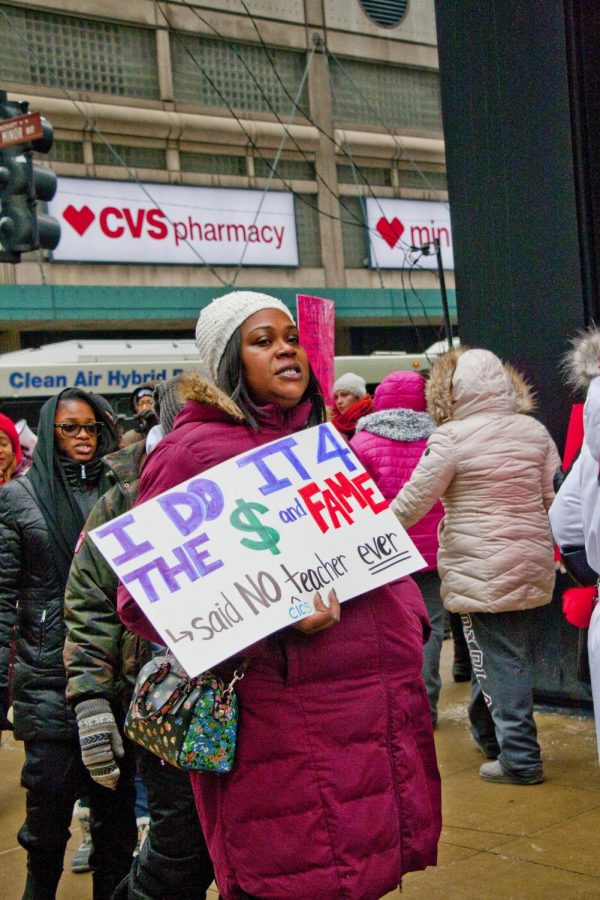Chicago Teachers Union Strike Gets Resolved
Photo via Wikimedia Commons under Creative Commons license
A teacher during the strike protests for a better contract. Teachers argued for higher pay and smaller class sizes, among other things.
November 6, 2019
In the over two weeks that the Chicago Teachers Union strike lasted, the two sides were engaged in a bitter fight over pay, staffing, class size, and planning time, among other things. After 15 days of negotiations and 11 school days missed, the Mayor and the CTU finally came to an agreement, one that sent students back to school November 1.
This new deal will bring great improvement to Chicago Public Schools, as the deal includes new rules on class size caps and a social worker and nurse in every school. Even though the teachers did not get paid prep time they wanted, they did get a 16% raise that will be carried out over the course of their five year contract. The deal was agreed upon on Wednesday, the strike continued through Thursday with the 2 sides battling for a short period of time over make up days before deciding on 5.
While the CTU and the CPS/city were locked in negotiations, the ramifications of the strike had an increasing negative impact on students, in particular affecting college related deadlines and opportunities for high school students. While the strike rolled on, ACTs, SATs, and PSATs got cancelled, and the closure of schools made it hard or near impossible for students to obtain necessary elements for their early action application documents that must be submitted by November 1.
The strike also caused countless student athletes to forfeit their playoffs, with golf, tennis, soccer, cross country, and volleyball all having to forfeit their games. The only sport with hope left for their season continuing is football, who were able to participate in playoff games on Saturday after the strike ended Thursday night.
While the second longest strike in CTU history had great ramifications, the problems facing teachers and students would have increased if the strike rolled on further. If the strike continued any longer, teacher’s health insurance would have also been affected, putting them even more in the hole than they already are after going almost 2 weeks without pay.
Students would have also continued to miss days of school, creating a curriculum conundrum and dwindling options for things to do. Even though there were options for camps and services run by some of the schools, these options were often not cheap and therefore not affordable for many people. This left both parents and kids in a pickle, with the parents having to figure out a way for their children to pass the time that works from them and the kids being faced with boredom after the new freedom of the first few days wore off.
The strike finally ended on Thursday, October 31, drawing these important and tense negotiations to a close and allowing students to return to school on Friday. These needed improvements will hopefully begin to make a big impact in the classroom, and show the teachers that their hard work has paid off.

